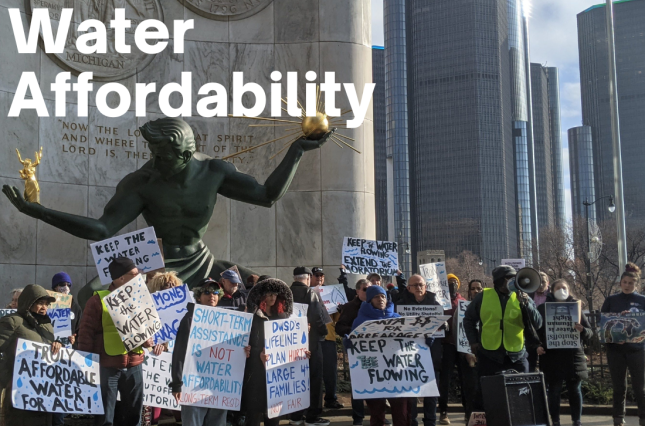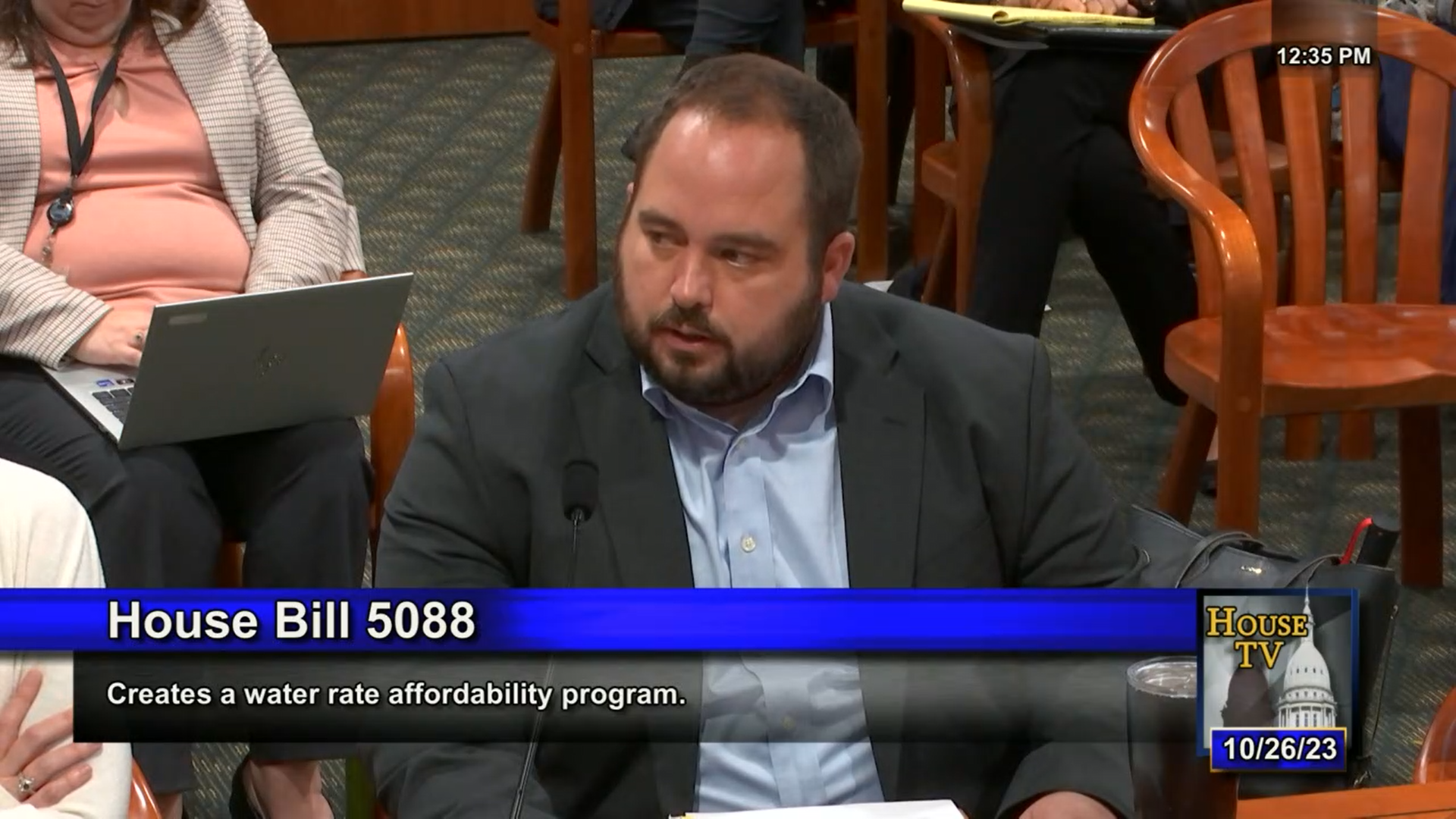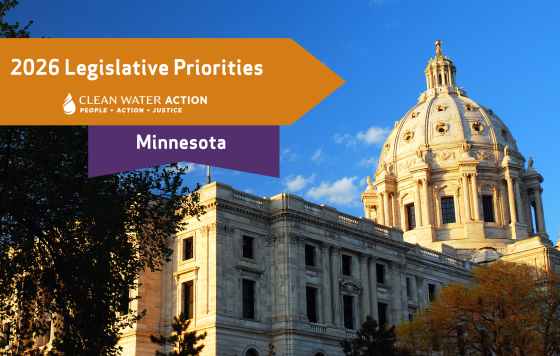
Support Water Affordability for Michiganders

On October 26th 2023 the Michigan House Natural Resources, Environment, Tourism and Outdoor Recreation Committee heard testimony on HB 5088-5093, a package of bills to create a water affordability program for Michigan residents. Clean Water Action Michigan State Director Sean McBrearty testified in favor of the bills. Read his statement below and send your own message in support to your Michigan lawmakers.
Thank you Chair Pohutsky, Vice Chair Hill, and committee members for allowing me to testify today. I am Sean McBrearty, Michigan Director for Clean Water Action. We represent over 130,000 Michigan residents who understand that access to safe, clean, and affordable drinking water is a human right. I would also like to thank the House bill sponsors as well as Senator Chang for her tremendous leadership in developing the bill package before you today.
I want to start with some historical background. Over the last 40 years, water rates in Michigan have nearly doubled when adjusted for inflation. In some Michigan communities, rates have quadrupled over the same time period. According to current estimates, one in ten Michigan families struggle with unaffordable water bills.
It hasn’t always been this way, and over the last 40 years this problem has grown more dire. The current funding model relied upon by most water utilities in which scant federal funds are supplemented by state and local matching funds while the balance is carried by ratepayers is not sustainable and it was never designed to be sustainable.
In 1977, the federal government contributed an average of 63% of the necessary funding for water infrastructure to each state. In recent years, the federal government has contributed less than 10%. Because of federal disinvestment and later state disinvestment, the burden for paying to maintain our aging water infrastructure has fallen on residents and ratepayers.
This is largely why Michigan ratepayers have seen water rates double in the last 40 years. As urban sprawl accelerated in the 60s through 80s, increasing needs for water infrastructure stressed the systems of our urban cores. This helps to explain why certain communities have seen their rates quadruple in the last 40 years - in many urban core communities, ratepayers are paying for infrastructure that transports water to far away suburban communities.
The current ratepayer system that we rely on was never made to sustain so much of the necessary investments in water infrastructure. This is the core of the reason that 10% of Michigan families suffer from unaffordable water rates. These bills would create a statewide water affordability program, allow local water utilities to implement their own program as long as it meets the same minimum standards, and ensure that residents across our state have reasonable water bills that they can afford to pay. Moreover, this package will provide protection against water shutoffs for residents who qualify for the program, guarantee water rate transparency, and would decriminalize the act of turning one's water back on after it has been shut off.
Michigan is surrounded by 20% of the world’s fresh surface water. We all understand the importance of this resource. But what does it say about us as a state that even with the abundance of water that surrounds us, one in ten families can’t afford the water coming from their taps? Water is a human right, it is not a commodity to be bought and sold and it is not a luxury for those fortunate enough to be able to afford it.
The bills before you today are a huge step towards recognizing that all people regardless of income have a right to safe, clean, affordable drinking water. I strongly urge you all to support and pass this package. Thank you.


